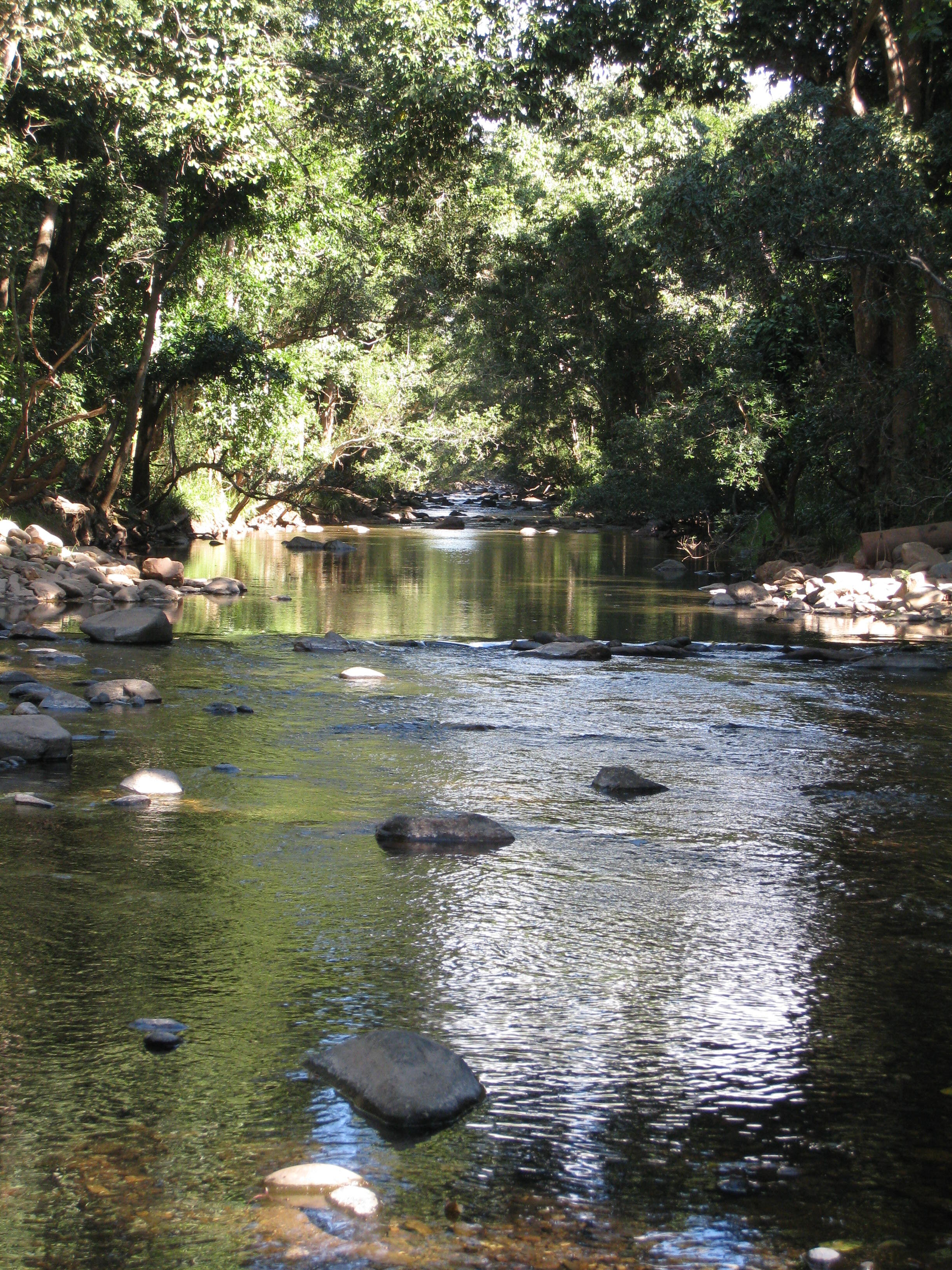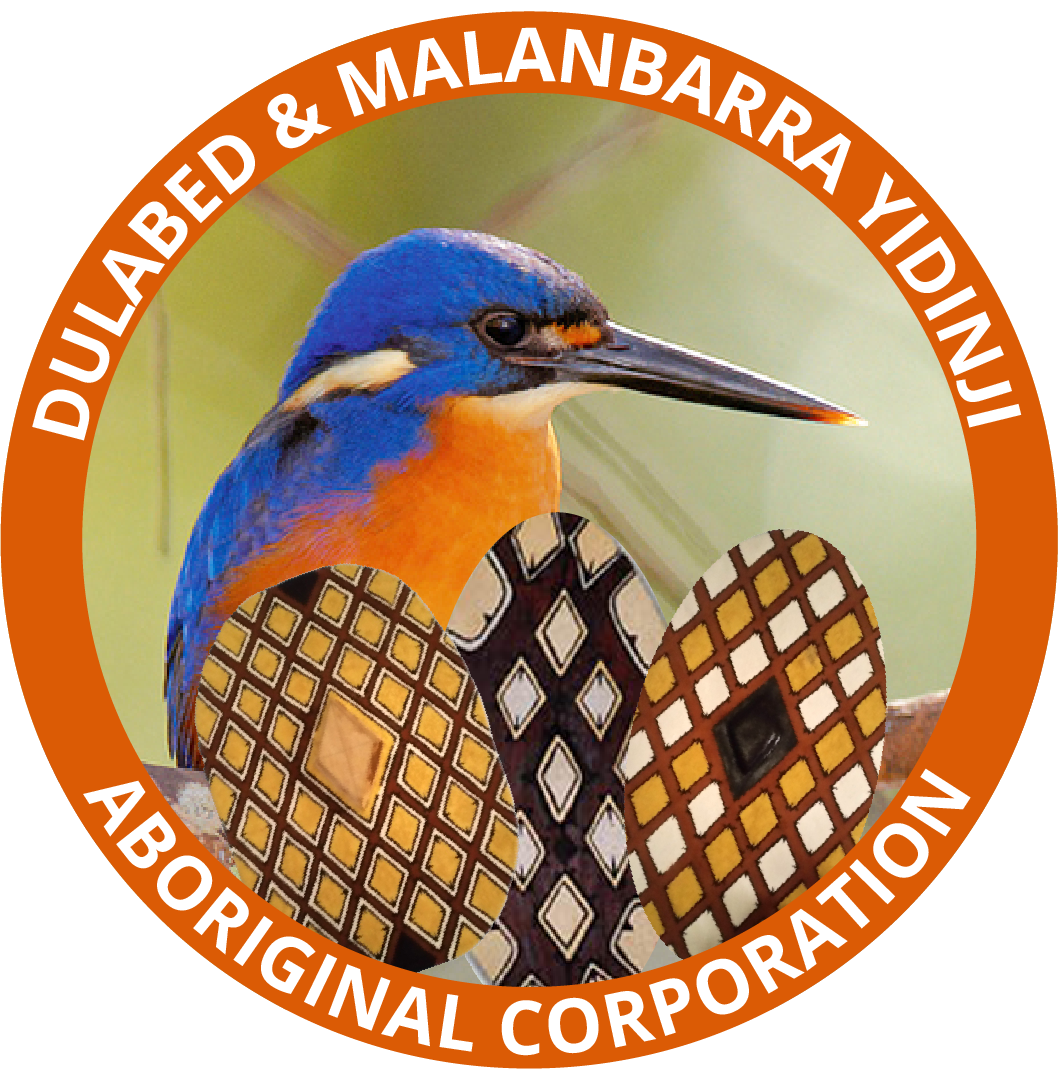
People. Country. Culture.
“When we, the Dulabed Malanbarra Yidinji People, speak of Country, we mean much more than just the place we come from. Country is who we are and who we belong to. It is our relationship with other people and the world around us. A world where everything is connected, everything is family, everything is identity, our spirituality, our economy, our home and our people. Country makes us strong and keeps us well. People talk about Country in the same way they would talk about a person. They speak to Country, sing to Country, visit Country, worry about Country, feel sorry for Country and long for Country. People say that Country knows, hears, smells, takes notice and takes care. This is our Country. All aspects of it are of importance to us. All of it has spiritual meaning to us. The Country gives us our lore. The lore gives us our Country. Aboriginal people are governed by this lore.”
- Statement of significance, given at the DMYAC Consent Determination 2009
People.
Dulabed, Malanbarra, and Malanbarra Yidinji are names that are interchangeably. We do business in relation to this plan for our own family areas, as well as together as Dulabed Malanbarra and Yidinji people, through DMYAC. For the purpose of this plan when we refer to country, we say Malanbarra Country.
Malan or mullun means stony river and creek bed, barra or burra means to belong to, together Malanbarra are the people of the Mulgrave River. The Malanbarra clan, are part of the Yidinji tribe and Yidin language group.
Gunjarabi, a god like spirit walked through our country naming everything and everyone informing the lore of the land.
Dulabed is an important authoritative figure and guardian for Dulabed families and we refer to him in our corporation name and land dealings. Gunjarabi and Dulabed are connected through dreamtime.
The Dulabed, Malanbarra, and Yidinji names are also used in relation to family estates, but we are all one from the top to the bottom of our Country. We work together to do family and Country business, but not always cultural business. At the same time, we recognise each other’s areas of responsibility and interests.
Dulabed Malanbarra Yidinji Aboriginal Corporation (DMYAC) is our corporation name. When we are talking about the corporation, we say DMYAC.
As Dulabed Malanbarra Yidinji people we have always retained our identity and responsibility in our Country. As a people we exercise a policy of maintaining good relationships.
Contact history is an important part of our history and how we do business but contact history itself does not define Dulabed Malanbarra Yidinji people our Country or Cultural business.
Country.
Geographical areas of our country include:
The Goldsborough Valley
Behana Creek in the south (Behana Creek and Bunda Djarruga Murrgu (the Pyramid) have other clan/tribal interests too)
All the way up the Gillies (on the Goldsborough Valley Side) and Little Mulgrave National Park
Gadgarra State Forest at the back of Lake Eacham (including Robsons Track on the Gilles), Rose Gums, and parts of the Yungaburra district to Lamons Hill where we border with Njadjon Jii
Down right over the Goldsborough Valley (including Tooheys Creek, the Mailman Track, Fisheries Crossing and Kearney’s Fall’s), we neighbour Wanyar Majay Yidinji who go south from Behana Creek.
.
Culture.
All Dulabed Malanbarra and Yidinji people’s business has its roots in Country and Culture and these are fundamentally linked.
DMY cultural business is held and managed by DMY Traditional Owners.
Our Cultural business involves:
being on Country.
having our children and future generations embrace Cultural knowledge and responsibility.
respect for Cultural protocols of our land in all decision making, including natural resource management to ensure Cultural business is acknowledged and respected by our partners and stakeholders.
continued use and practice of customary law in a contemporary world.
educating the broader community.
Our people live, enjoy and benefit from our cultural business and responsibilities every-day, through our land and cultural resources and through healing and improved spiritual health and wellbeing.
Many current land management regimes and legislation have impeded our way of life and cultural practice. However, this does not change our level of responsibility, commitment and cultural identity.
We continue to work to overcome impediments towards our Country and Culture.



